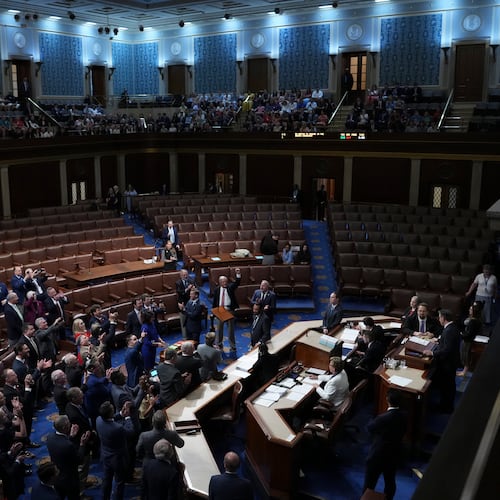The health-care debate is rife with "argument by anecdote", in which individual stories of ObamaCare's success or failure are cited as substitutes for actual evidence. But sometimes -- especially when illustrating the foibles of human nature -- anecdotes and stories are far more revealing than all the facts and numbers in the world.
Take the case of Luis Lang of Fort Mill, South Carolina. Lang, 49, is a diabetic and a smoker. He is also self-employed, with no health insurance. In fact, he made the conscious decision NOT to take advantage of the Affordable Care Act, believing that his conservative principles called for him to pay his medical bills out of his own pocket.
That's admirable, I guess, but also foolish, because the rest of the story is pretty predictable. Lang became ill, unable to work and is about to go blind without expensive surgery. "At the moment I am down to about 20 percent in my left eye and about 30 percent vision in my right eye," he says. He has quickly gone through his savings, the annual window has closed on buying health insurance on the federal exchange, and South Carolina, like Georgia, has refused to expand Medicaid coverage.
And as reporter Ann Doss Helms writes in the Charlotte Observer, there's this:
"(My husband) should be at the front of the line because he doesn't work and because he has medical issues," Mary Lang said last week. "We call it the Not Fair Health Care Act."
It's amazing: Somehow, it's Obama's fault that Lang chose not to buy insurance, Obama's fault the gamble didn't pay off, Obama's fault that the Supreme Court decided to let states opt out of Medicaid expansion and Obama's fault that South Carolina Republicans exercised that option. It's just not fair!
It's the free-rider problem, the political problem, the pre-existing condition problem, the role of ideology, the often enormous expense of health care, the human eagerness to believe that "it can't happen to me," the difficult conflict between feeling sympathy for someone in trouble and the reality that his trouble is to a large degree self-inflicted -- it's all there, all wrapped up in the story of Luis Lang.
In short, the health-care problem would be a lot easier to solve if it wasn't complicated by the fact that it involves human beings, or if human beings were actually the rational beings that economic theory likes to pretend we are.
(The Langs have established a GoFundMe page to raise money to help offset the cost of the surgery. As of 2 p.m. today, it reports $900 in contributions toward the $30,000 surgery.)
About the Author
Keep Reading
The Latest
Featured


